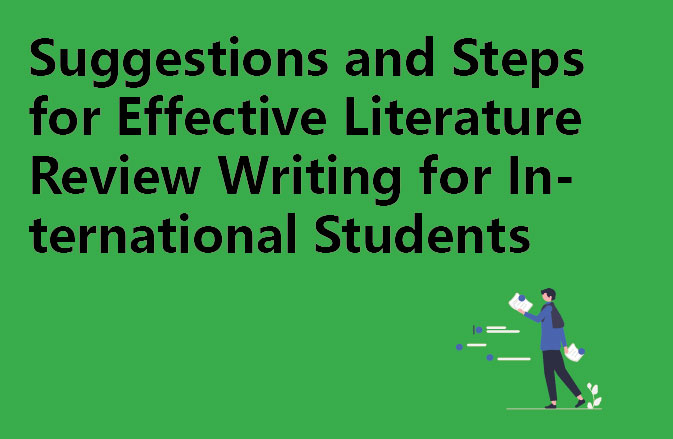I. Introduction
Literature review is an important part of postgraduate study, which collects, screens and comprehensively analyses all kinds of relevant academic literature in a rigorous manner to ensure a comprehensive and in-depth understanding of the research topic. However, many students face many difficulties in this process, such as the lack of critical thinking ability, insufficient mastery of literature review writing skills and unclear grasp of the research frontiers and so on. Therefore, this paper provides some practical suggestions and feasible steps, aiming to improve the efficiency and quality when creating a literature review.
Second, the importance of literature review
Literature review is not only a systematic combing and induction of existing research results, but also an important way to explore the status of the research field, problems and their development trends. By analysing and comparing a large amount of literature, we are able to better understand the connotation and extension of the research topic, and discover the shortcomings of the existing research, so as to provide guidance and inspiration for the subsequent research work.
III. Structure and Content of Literature Review
The literature review usually contains the following four aspects:
1. the importance of the study: to elaborate the importance and significance of the research topic, and to draw the reader’s attention.
2. the background and development of the research: introduce the origin and development of the research topic and the current research status.
3. the status quo, problems and possible causes of current research: describe in detail the research status of the research topic, point out the problems therein, and analyse the possible causes of these problems.
4. Issues and development trends of future research: look forward to the future development direction of the research topic, and put forward possible research issues and development trends.
Fourth, the writing of the literature review steps
1. Determine the research topic: first of all, you need to identify the specific issues or areas you want to study, which is the basis for writing a literature review.
2. collect literature: the use of library databases, academic search engines and other tools, a wide range of literature related to the research topic.
3. Screening the Literature: Preliminary screening of the collected literature, eliminating irrelevant or repetitive literature and retaining representative and valuable literature.
4. Reading Literature: Read the screened literature carefully to understand the authors’ research methods, results and conclusions, and record the important information and opinions at the same time.
5. Integrate the literature: integrate the screened literature in a certain logical order to form a complete literature review.
6. Modification and improvement: repeatedly check the structure of the literature review, content and language expression is clear and accurate, and according to the need for appropriate modification and improvement.
V. Literature review writing skills
1. Critical thinking: When writing a literature review, you should maintain critical thinking, objectively evaluate the existing research results, and avoid blindly accepting or rejecting them.
2. Focus: When integrating the literature, focus on highlighting the core issues and key points of the research topic, and avoid listing too much literature.
3. Language expression: use concise and accurate language expression, avoid using over-specialised or vague terminology so as to facilitate readers’ understanding.
Sixth, the rapid generation of literature review method
1. Borrow from the excellent literature review: Refer to the literature review part written by some high-quality master’s or doctoral theses to get inspiration and ideas from it.
2. copy and paste: for the excellent literature review, you can directly copy and paste it into your own work, but need to pay attention to appropriate modifications and adjustments.
3. weight reduction: in order to avoid the suspicion of plagiarism, you can reduce the weight of the copied and pasted content, so as to make it conform to the academic norms.
Conclusion
In conclusion, literature review is an important part of postgraduate study, which requires us to have a solid knowledge base, critical thinking and good writing skills. By following the above suggestions and steps, we can complete the literature review more efficiently and lay a solid foundation for subsequent research.




